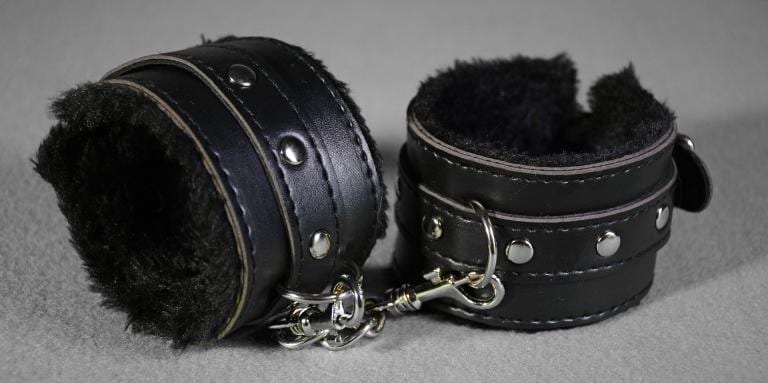About a week ago, I became aware that someone named Kavanaugh had been accused of sexual assault by an anonymous woman. The assault had supposedly happened 35 years ago, and the details were sketchy. There was every possibility that the woman was remembering wrong, or that the scattered details had been sensationalized by the press. Apparently the guy was up for a seat on the Supreme Court and wasn’t liked by the Democrats, so they were trying to dig up dirt.
At the time, a number of my liberal friends were angry that anyone was questioning the accusations. “Believe women!” they said, “Believe victims!”
I argued that this was premature. Although I’m a strong supporter of the #metoo movement, I am also aware that there is a genuine danger of it turning into a witch-hunt – or worse, a political tool. An infallible method for arbitrarily derailing any political candidate you happen not to like.
This would certainly not be a historical novelty. Unsubstantiated charges of sexual misconduct have been used to destroy political enemies going back at least as far as Ancient Rome. In Byzantium and in the Middle Ages charges of homosexuality were used in exactly this way – and sometimes the boys who accused powerful men of sodomy were actually paid to accuse.
So when I heard that a supreme court nominee was facing indistinct charges of sexual assault from an unnamed source, I was not keen to jump on the bandwagon. Progress towards justice for victims could only be hampered if it turned out that these charges were false. Besides, “Believe women” is a dangerous formula if it means “Believe without question, without proof, without investigation.” It’s dangerous to men because it means that unscrupulous women have a foolproof method of bringing down the innocent. Dangerous to women because every time we credit a false allegation it gives ammunition to those who want to discredit all allegations.
I recommended caution. I noted that there were several aspects of the story that didn’t quite sit right – one of them being the fact that the story broke just as Kavanaugh was about to be nominated. When I posted about it on social media, I was careful to add a parenthetical note that I wasn’t sure if the allegations were true.
And then Ford came forward. Suddenly there were names and details. It turned out that Mark Judge had spoken openly about drunken parties that he and Kavanaugh attended together at that time. He couldn’t remember the events of Ford’s story – but also was on record as having large alcohol induced black-outs during that period of his life. It turned out that Ford had told her therapist about this years ago, and that it was Feinstein, not Ford, who decided on the politically too-convenient time-line for releasing the allegations.
The story started to seem increasingly credible. When I looked back to the way that I remember traumatic or frightening things in my own life at about that age, I could see that I recalled them in about the same amount of detail as Ford remembered this. And the questions from the “skeptics” began to become increasingly ridiculous.
“Why doesn’t she remember where this alleged party took place?” Ummm, because she was fifteen? Do you remember the address of random house parties you went to at that age?
“If she doesn’t remember the address, how can she be sure she remembers it was Kavanaugh?” If somebody you know, even casually, throws you down on a bed and starts taking your clothes off you sure as hell aren’t going to just forget who that was. Most girls can tell you the name of the awkward guy who tried to feel us up on a date when we were fifteen. Not so many can tell you the address of the place where it happened. The brain prioritizes the faces and names of those who make us feel uncomfortable and unsafe.
At this point, I became convinced the the allegations were credible. Not necessarily true, but credible. They needed to be taken seriously. Because that’s what skepticism looks like: you ask for more information, more evidence, and when more is provided you compare it to what you know of human behaviour and ask “Does this add up?” And if it makes sense, if the addition of more information makes the case stronger, then you start to shift your position.
What I’ve seen way too much of in this case, from both sides but frankly, much more from the pro-Kavanaugh side, is knee-jerk partisan loyalty that has no concern for the truth. Those who want Kavanaugh out of SCOTUS believed the allegations prematurely, before there was sufficient evidence to justify belief. Those who want him in are casting about desperately for any excuse to disbelieve or ignore the allegations.
And they’re still doing it. At this point several more women have come forward. We have Deborah Ramirez’ story in detail, and we know that several people who knew her at the time were aware of this incident. The GOP have tried to do damage control, to confuse the story by bringing forth others who insist that “if it had happened they would have known.” Think back to high-school. Think back to college. Think of all the things you didn’t talk about to the people who were sure they knew what was going on in your life.
Increasingly, what we have is a growing pool of evidence that Kavanaugh was involved in drunken behaviour in his youth that goes beyond simple tom-foolery of ordinary sexual experimentation. That he sexually assaulted and humiliated women. That his behaviour was sufficiently out of line that even other boys of his class weren’t necessarily comfortable that it was okay. Ford’s report of Mike Judge’s behaviour suggests that even Judge felt maybe they were going to far. That multiple people are aware of this.
Moreover, the women have not made grandiose claims or claimed more than they could recall. Ramirez is notable in this respect: she admits to the holes in her own memory. The gaps in her narrative. She owns that she was drunk and she doesn’t claim anything all that spectacular.
Ford too, though to a slightly lesser degree, claims something relatively modest. Contrast this with a woman who we know was fabricating: the notorious “Jackie” of Rolling Stone fame. Her story wasn’t uncertain or restrained. It was full of exactly the kind of salacious details that people make up when they want attention – or want to discredit a political foe. If what you’re looking for is a tabloid-ready splash, you make up pedophile rings in pizza parlours, or gay orgies in the Bishop’s palace at night. Broken glass and rent-boys. Titillating details. Not “The way I saw his pelvis move, I’m pretty sure he was doing up his fly.”
These stories are credible precisely because of the missing details. Because they sound like memory, not like fabricated tales. Because the buzz surrounding them from the folks who were there, the people who admit that they remember, and the people who insist that it just couldn’t be true, sounds exactly like the buzz that surrounds every case of campus rape ever.
That’s not necessarily sufficient to make a case in a court of law. But it’s definitely sufficient to make a case against putting the man in charge of a court of law.
And yet, I continue to see people trying to poke holes in the testimony that’s coming forward. Trying to make it look like doubt is still the reasonable reaction. People who need to believe that this women are lying.
That’s what disturbs me. I started out as a skeptic. I’ve listened to arguments on both sides. I’ve read articles for and against. Most importantly, perhaps, I simply don’t have a stake in it.
I’m pro-life. I’m Canadian. I don’t think that Kavanaugh will overturn Roe v. Wade or that the Republicans, let alone Donald Trump, have any interest in overturning it. I don’t think overturning Roe will significantly impact the number of abortions in America. I have no idea who Kavanaugh even is outside of this present controversy, or what political positions he holds, or whether he is pro-life in any meaningful sense.
All I know is that I came to the table skeptical. Aware that false allegations are problem, that they are real, and that they are a dirty political trick. I started off concerned that in using #metoo for short-term political advantage the Democrats were functionally going to screw over victims by making it look like predictions of a witch-hunt against men were true. I had no vested interest in coming to any particular conclusion.
I then allowed the evidence to sway me, rather than trying to sway the evidence to fit my own particular agenda. Enough of it is in now that I’m comfortable saying that it’s time we believe these particular women, in this particular case, because their stories agree and their testimony adds up.
Image courtesy of Pixabay
Stay in touch! Like Catholic Authenticity on Facebook:
















